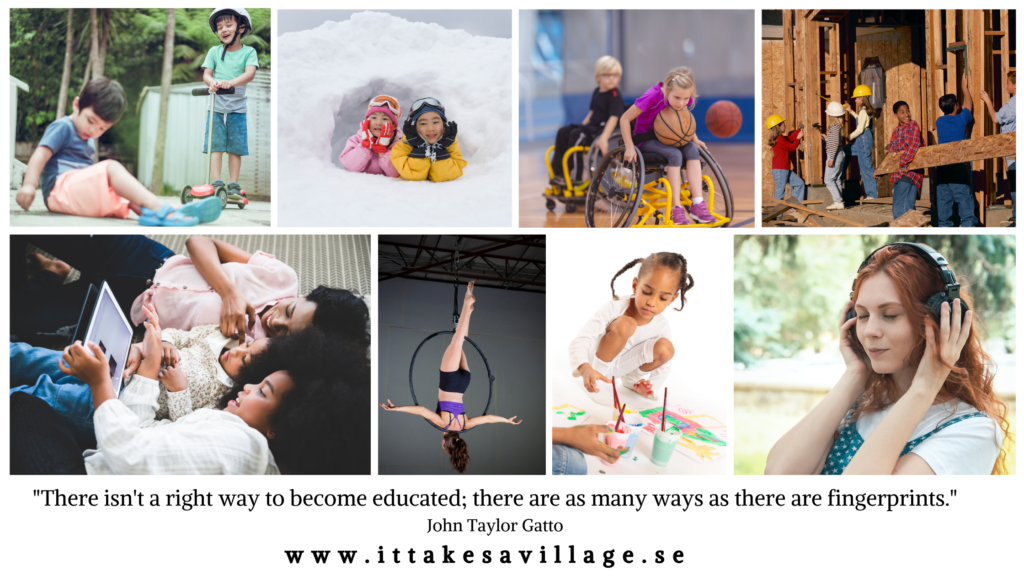(Self-directed) Learning

Learning is innate to humans. However, for some reason we have come to the believe that especially young humans after a certain age (often somewhere between 2 and 7, depending on the country) are lazy, incapable or/and not motivated and therefore need to be forced in order to learn. And that we older humans know best what, how, where, when and in which order to learn. We created institutions like kindergartens and schools, and most times children have no choice but to go there. Of course, there are people who greatly thrive while spending their days in institutions – but there are also many who don’t. Where is space in the system for the introverts and all the others who need some or a lot of time by themselves (apart from a few minutes in the restroom)? How can people feel seen and valued whose main talents are not academic skills? What about people who need a lot of movement, or who love free play (way more than the little time during school breaks)? Where is room for humans who happen to have very different interests to what the institution’s curriculum dictates, or who learn much better in very different ways or at very different places? How do we expect people to learn when they feel stressed (e.g. because they feel rediculed, excluded, exhausted or overwhelmed)? What about children who thrive on later mornings, and who learn best in the afternoons or evenings? And how can we serve the individual human being when 15, 20 or 30 children are supposed to follow the same schedule and requirements – despite their totally unique needs, skills, personalities, desires and emotions?
All these questions (and many more) have brought me to discover “unschooling”. I actually much prefer other expressions for this way of learning and living, for example “delight-driven, interest-based, self-directed lifelong learning”, as Idzie Desmarais calls it. But “unschooling” is much shorter, and one single umbrella expression that is used frequently, and I, too, am using it in order to make it simple.
Unschooling is much more than not sending your kids to school. (In fact, unschooled kids might even attend institutions – just with the great difference that they do this voluntarily.) Unschooling involves a great deal of de-programming, so called de-schooling. It involves mostly us parents and other adults who are serving young people, and requires us to look at our stories, our believes, our patterns, our behaviour, our words, our wounds – and our will to work with all of these and to heal.
If you are curious to learn more, I warmly invite you to read on! More articles about self-directed learning will follow.

Yes, please!
I'd love to receive inspiration around community life and invitations for
re-villaging events in the future!
Thank you!
You have successfully joined our subscriber list.